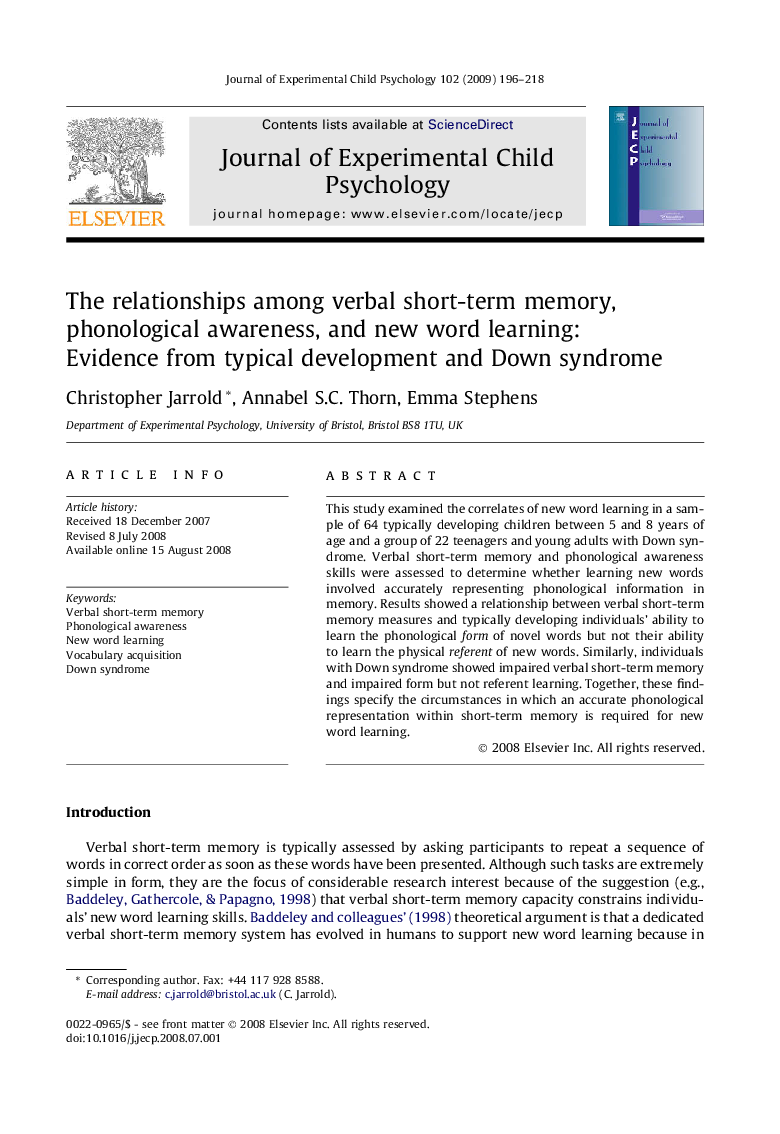| Article ID | Journal | Published Year | Pages | File Type |
|---|---|---|---|---|
| 918702 | Journal of Experimental Child Psychology | 2009 | 23 Pages |
This study examined the correlates of new word learning in a sample of 64 typically developing children between 5 and 8 years of age and a group of 22 teenagers and young adults with Down syndrome. Verbal short-term memory and phonological awareness skills were assessed to determine whether learning new words involved accurately representing phonological information in memory. Results showed a relationship between verbal short-term memory measures and typically developing individuals’ ability to learn the phonological form of novel words but not their ability to learn the physical referent of new words. Similarly, individuals with Down syndrome showed impaired verbal short-term memory and impaired form but not referent learning. Together, these findings specify the circumstances in which an accurate phonological representation within short-term memory is required for new word learning.
